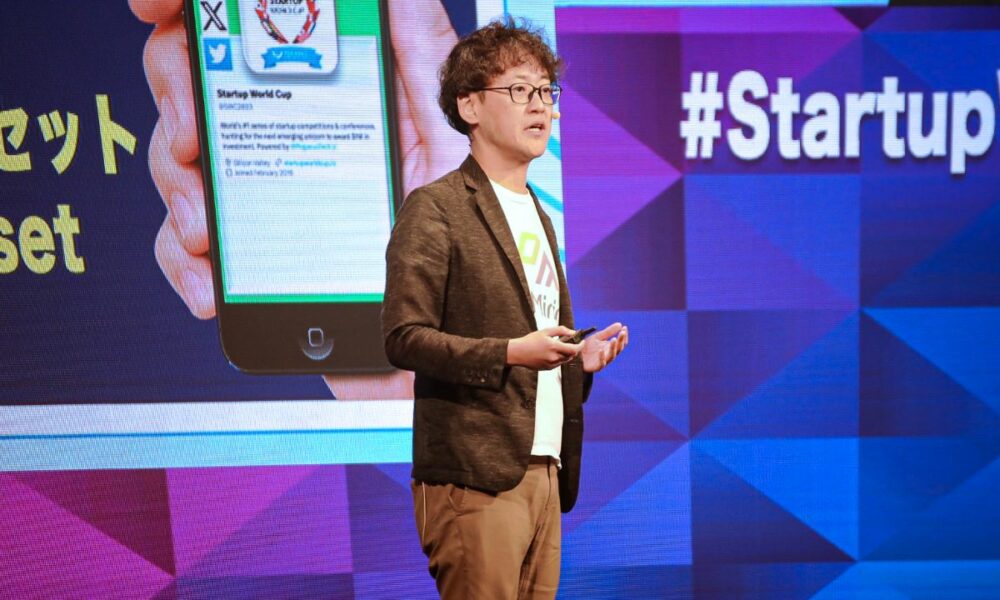PlayMining GameFi and DePIN-Integrated Solutions Win Tokyo Championship at Renowned ‘Startup World Cup’

With cryptocurrency and blockchain technology having over 15 years to mature since Bitcoin was launched in 2009, we are now in an era where real world use cases are becoming more commonplace and drawing more public attention. Such is the case with ‘Decentralized Physical Infrastructure Networks’ — or DePIN for short — which integrate blockchain tech with real world physical infrastructure to expand capabilities in new ways. DePIN is a hot issue, and we can expect to see more and more of it in the future.
One great example of DePIN-integrated solutions — and the first of their kind to combine with GameFi or Web3 gaming mechanics — comes from Digital Entertainment Asset (DEA), Singapore-based parent company of the long-running PlayMining GameFi platform. DEA pitched their DePIN solutions at this year’s Startup World Cup Tokyo Regionals and won first place. They will join over 50 other startups to pitch at the Grand Finale in October, 2024 in Silicon Valley, where DEA will represent Japan.
Pegasus Tech Ventures launched Startup World Cup in 2017, and it has grown to become one of the largest and most popular startup pitch contests and conferences in the world. The Startup World Cup holds regional preliminaries in more than 75 regions internationally. The grand prize winner takes home around US$1 million, while all participants are able to put their startups in front of VCs in hopes of drawing investment interest.
DePIN + GameFi = The Perfect Way to ‘Gamify Work’
The first award-winning DePIN-integrated solution that DEA presented at the Startup World Cup regionals was PicTrée, a free mobile app that incentivizes people to actively participate in contributing to their society. Co-developed as part of a collaboration partnership with TEPCO Power Grid (TEPCO PG) — the largest electric power company in Japan — PicTrée rewards teams of players for going out into their local communities to snap photos of power poles, with the aim of connecting as many power lines as possible on an in-game map.
By gamifying power pole inspection in such a way, it makes it much easier for power companies to maintain their extensive infrastructure networks. In their Startup World Cup presentation, DEA shared results of a demonstration test conducted with TEPCO PG in central Japan earlier this spring, which received more than 19,800 photos of around 12,000 utility poles within two and a half months. The test project revealed multiple utility poles with crow nests and ivy, enabling TEPCO PG to deal with these nuisances in a fast and efficient manner. The demonstration test was featured by Nikkei in a July 24 article.
DEA also shared a second DePIN-integrated game that helps to fulfill a lack of adequate labor in the waste management industry. DEA is co-developing a Web3 game in which players sort trash on their mobile devices, which remotely controls actual physical robots that sort real waste at a distant factory. The game has attracted a subsidy by the Japan External Trade Organization), and will launch in November, 2024.
DEA’s innovative ‘gamifying work’ DePIN-integrated solutions are an example of the company’s mission to tackle societal issues through GameFi mechanics such as Play & Earn, and they’re attracting a lot of attention in Japan and abroad.
In addition to developing social good innovations, DEA also operates the DEAPcoin ($DEP) token, which is integrated into an NFT marketplace and all of the games on their PlayMining platform. PlayMining features 2.8 million users and a wide selection of Web3 games, as well as an interactive manga metaverse project and NFT-integrated AI virtual idols.
For more information about PlayMining, please visit their official website and follow them on social media.





